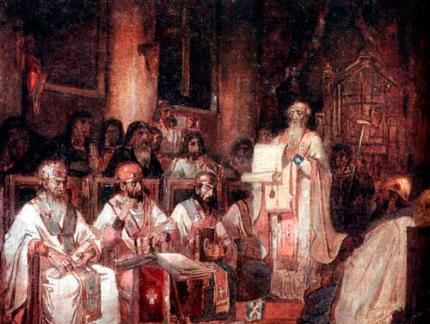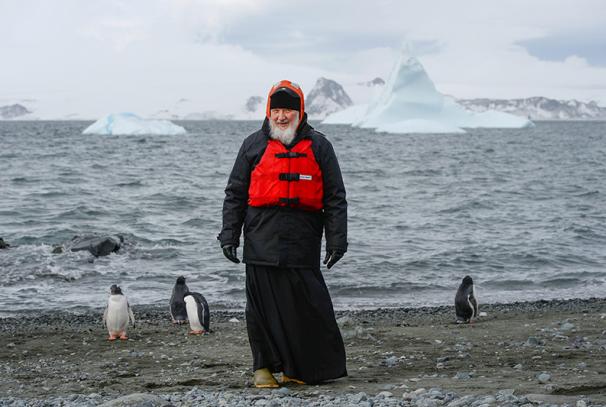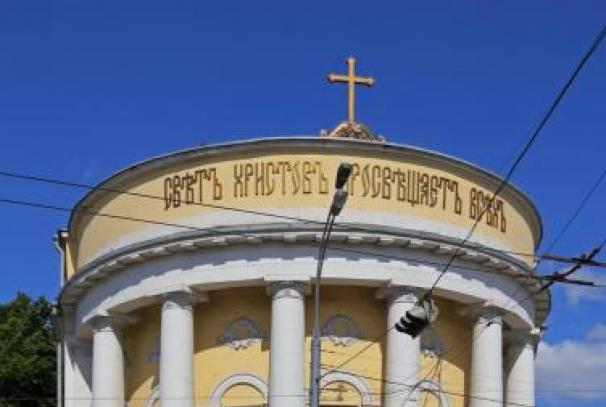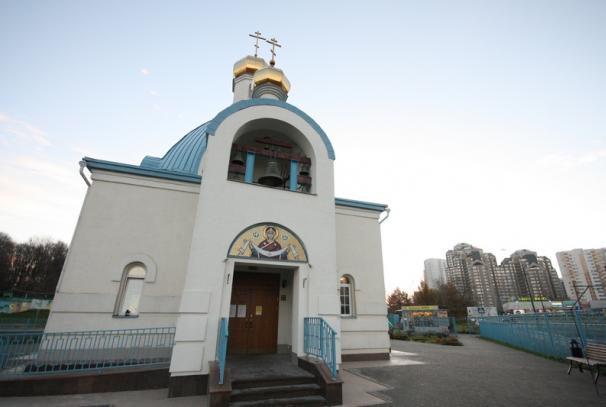Bus in the plural. Plural Nouns - Exercises
The plural in English is formed according to a certain rule. When learning a language, beginners often have difficulties, since this rule has its own characteristics and exceptions.
In this article you will learn:
- rules for the formation of plural nouns
- exception words
- words that do not vary in numbers
The rule for the formation of plural nouns in English

In English, the plural is formed by adding the ending -s to the word:
cat - cat s
cat - cats
cup - cup s
cup - cups
book - book s
book - books
phone - phone s
telephone - telephones
pen - pen s
pen - pens
It would seem that everything is extremely simple. However, as in many English rules, there were some exceptions.
In some cases, instead of -s we need to add the ending -es. Let's consider in which:
1. If the word ends in -s, -ss, -sh, -ch, -x, -z
kiss - kiss es
kiss - kisses
church - church es
church - churches
bus - bus es
bus - buses
dish - dish es
dish - dishes
tax - tax es
tax - taxes
2. If the word ends with -about
potato - potato es
potato - potatoes
zero - zero es
zero - zeros
hero - hero es
hero - heroes
But there are exception words to which, despite the fact that they end in aboutwe add the ending -s. Such words you just need to remember:
photo - photo s
photography - photographs
video - video s
video - several videos
piano - piano s
piano - several pianos
kilo - kilo s
kilogram - kilograms
3. If the word ends with -ythen we change y on the i and add the ending -es
secretary - secretar ies
secretary - Secretaries
factory - factor ies
factory - factories
theory - theori es
theory - theories
reply - repli es
answer - answers
However, if the word ends in yeah and we pronounce the ending as [th], then we don’t change it in any way, but simply add -s:
boy - boy s
boy - boys
toy - toy s
toy - toys
way - way s
way - ways
4. If the word ends in -fethen f change to v and add -es
knife - kni ves
knife - knives
wife - wi ves
wife - wives
life - li ves
life is life
We examined the basic rules that allow us to make two or more of one subject. But in the English language there are exception words that do not lend themselves to these rules.
Plural Exception Words in English

In the English language there are words whose formation of a plural form does not occur according to the rules. Such words can be divided into two groups:
1. Words that change their form regardless of the rules
The formation of the plural form of these words does not lend itself to any logic, it just needs to be remembered.
man - men
man - men
person - people
person people
woman - women
woman's woman
mouse - mice
mouse - mice
foot - feet
leg legs
child - children
children
tooth - teeth
tooth teeth
2. Words that do not change in any way
These words do not need to add an ending or change them, regardless of whether we are talking about one subject or several.
fish - fish
fish - fish
fruit - fruit
fruit - fruit
deer - deer
deer - deer
sheep - sheep
sheep - sheep
aircraft - aircraft
airplane - airplanes
means - means
way - ways
trout - trout
trout - trout
Words that do not vary by numbers in English
As in Russian, in English there are words, the number of which cannot be changed at all (glasses, trousers, dishes, honey, etc.). Such words can only be singular or plural.
1. Words that are used only in the singular
We cannot put such words in the plural, even if there are several objects. Remember, in Russian we also have such words: video, piano, flamingo, etc. Agree, we can’t say: "There were three pianos in the classroom." We say: “There were three pianos in the classroom,” although we mean several things.
advice - advice
furniture - furniture
information - information
money - money
friendship - friendship
love - love
news - news
2. Words that are used only in the plural
We cannot put such words in the singular. For example, we say, “Give me scissors,” although we mean one thing. We cannot say, "Give me a scissor."
scissors - scissors
trousers - pants
glasses— glasses
goods - goods, goods
clothes - clothes
stairs - stairs
arms - weapons
So, we looked at how to change words when we talk about two or more things. Now let's practice doing this.
Perform a workout exercise
Put the following words in plural form:
Tomato, box, sheep, dictionary, flower, day, video, child, plate, fruit, class, key, foot, window, country, brush, photo, fish, woman, party.
Leave your answers in the comments under the article.
Plural nouns in English (The Plural) formed according to simple rules: in most cases the ending is added to the basis of the noun -es. For instance:
🔊 brush - 🔊 brush es (brushes).
But there are exceptions to words ending in a consonant and -ywhose plural form is formed by the substitution -y on the -i and adding ending -es. For instance:
🔊 fl y - 🔊 fl ies (flies).
Summary table of noun plural formation rules
| The noun ends in -s, -sh, -ch, -x, -z | The noun ends in the consonant and -y | The noun ends in a consonant and -o | |
|---|---|---|---|
| The rule | Add the ending -es | Change the letter y to i and add -es | Add the ending -es |
| Examples | 🔊 bu s - 🔊 bus es (buses), 🔊 wat ch - 🔊 watch es (hours), 🔊 bo x - 🔊 box es (boxes) | 🔊 cit y - 🔊 cit ies (cities), 🔊 country - 🔊 countr ies (countries) | 🔊 tomat o - 🔊 tomato es (tomatoes), 🔊 potat o - 🔊 potato es (potatoes), 🔊 her o - 🔊 hero es (heroes) |
Note: if a noun ends in -o , but this word is a proper name, abbreviation or borrowing, then only the letter is added -s :
🔊 Eskimo - 🔊 Eskimo s
(Eskimos)
🔊 kilo - 🔊 kilo s
(kilograms)
🔊 tango - 🔊 tango s
(tango).
Pronunciation rules for plural endings
There are also some nuances here. What kind? The pronunciation of the plural ending depends on the final sound in the singular form (see table No. 2 below).
| A noun ends in a vowel or voiced consonant | The ending reads like [z] | 🔊 game - 🔊 games, 🔊 tree - 🔊 trees |
|---|---|---|
| Noun ends in dull consonant | The ending reads as [s] | 🔊 cat - 🔊 cats, 🔊 clock - 🔊 clocks |
| The noun ends in the sounds [ʤ], [ʧ], [ʃ], [s] or [z] | The ending reads like [ɪz] | 🔊 orange - 🔊 oranges [ˈɒrɪn dʒ - ˈɒrɪn dʒɪz], 🔊 vase - 🔊 vases |
Misplaced Nouns
Plural nouns in the English language may not be formed according to the rules. These nouns are the so-called exceptions. I will introduce you to them in detail in the tables below.
| Singular | Plural | Singular | Plural |
|---|---|---|---|
| 🔊 man | 🔊 men | 🔊 wolf (wolf) | 🔊 wolves |
| 🔊 woman | 🔊 women | 🔊 mouse | 🔊 mice |
| 🔊 child (child) | 🔊 children | 🔊 louse (louse) | 🔊 lice |
| 🔊 tooth | 🔊 teeth | 🔊 penny (coin in cent) | 🔊 pence |
| 🔊 foot | 🔊 feet | 🔊 person | 🔊 people |
| 🔊 goose (goose) | 🔊 geese | 🔊 sheep | 🔊 sheep |
| 🔊 ox (bull) | 🔊 oxen | 🔊 deer (deer) | 🔊 deer |
| 🔊 leaf | 🔊 leaves | 🔊 fish | 🔊 fish |
Non-Latin nouns that form the ending plural
Nouns used only in the plural or only in the singular
Uncountable nouns (both material and abstract) are used only in the singular:
- 🔊 There is no snow on the ground.
- 🔊 The news was very interesting.
Nouns in the singular in Russian, in the plural in English
Paired nouns ending in -s, always in the plural
Groups of nouns that are used only in the singular
Nouns with different meanings in the singular and plural
| Singular | Plural |
|---|---|
| 🔊 air | 🔊 airs (arrogant manners) |
| 🔊 ash (ashes) | 🔊 ashes (ashes) |
| 🔊 content | 🔊 contents |
| 🔊 custom | 🔊 customs |
| 🔊 damage | 🔊 damages (losses) |
| 🔊 drawer (drawer) | 🔊 drawers (chest of drawers) |
| 🔊 fund (stock) | 🔊 funds cash |
| 🔊 glass (glass, glass) | 🔊 glasses |
| 🔊 hair | 🔊 hairs (wool, separate hairs) |
| 🔊 look | 🔊 looks (appearance) |
| 🔊 pain | 🔊 pains (effort, suffering) |
| 🔊 scale | 🔊 scales (scales) |
| 🔊 spectacle (sight, view) | 🔊 spectacles |
| 🔊 step | 🔊 steps (gangway) |
| 🔊 work | 🔊 works (factory) |
| 🔊 saving | 🔊 savings |
- Some more useful articles
Exercise 1
Put the proposed nouns in the plural form.
Computer (computer), lion (lion), glove (glove), lady (lady, lady), bus (bus), knife (knife), potato (potato), desk (school desk), boat (boat), child (child) ), boy (boy), sheep (sheep), leg (part of the leg from the foot to the hip), watch (watch), tooth (tooth), flower (flower), play (game), umbrella (umbrella), foot (foot) ), phone (telephone), person (person), armchair (chair), tomato (tomato), theater (theater), wolf (wolf), ox (bull), woman (woman), subway (subway, metro), deer (deer), elephant (elephant), monkey (monkey), fox (fox), family (family), goose (goose), butterfly (butterfly), tram (tram), daddy (uncle), man (man).
Answers:
Computers, lions, gloves, ladies, buses, knives, potatoes, desks, boats, children, boys, sheep, legs, watches, teeth, flowers, plays, umbrellas, feet, phones, people, armchairs, tomatoes, theaters, wolves, oxen, women, subways, deer, elephants, monkeys, foxes, families, geese, butterflies, trams, daddies, men.
Exercise 2
Insert the missing predicates and demonstrative pronouns in the corresponding number.
1. Marta bought ... red trousers and ... blue jeans in Germany. “Marta bought those red pants and those blue jeans in Germany.”
2. Her scissors ... new and very sharp. - Her scissors are new and very sharp.
3. Mathematics is a very important and interesting subject. - Mathematics is a very important and interesting subject.
4. John`s binoculars ... the best. “John’s binoculars are the best.”
5. The people in the aula ... our guests. - People in the assembly hall are our guests.
6. Mary chose ... brown tights and new white jeans. - Mary chose those brown tights and new white jeans.
7. ... stockings hang together with ... shorts. - These stockings (socks, leggings) are suitable for those shorts.
8. Our Granny`s spectacles (\u003d glasses) ... on the kitchen-table. “Our grandmother’s glasses are on the kitchen table.”
9. The police ... looking for a fair-haired European with a black Rottweiler. - The police are looking for (\u003d police are looking for) a fair-haired man of European appearance with a black Rottweiler.
10. Draughts ... his favorite game and billiards ... hers. - Checkers is his favorite game, and billiard is her (favorite game).
Answers:
1. These, those. 2. Are. 3. Is. 4. Are. 5. Are. 6. Those. 7. These, those. 8. Are. 9. Are. 10. Are, are.
Exercise 3
Change the singular in the following sentences to the plural.
1. That was a cowboy. - It was a cowboy.
2. Mary found a flight to Delhi. - Mary found a flight to Delhi.
3. Robert made this bookshelf himself. - Robert himself made this bookshelf.
4. The window and the door are closed. - The window and door are locked (closed).
5. There is a mouse in the kitchen. - There is a mouse in the kitchen.
6. It is a white goose. - This is a white goose.
7. That was not a sheep. That was a donkey. - It was not a sheep. It was a donkey.
8. It is not an interesting story. - This is an uninteresting story.
9. Is that Eric`s knife? “Is that Eric's knife?”
10. There was a beautiful bright star in the sky. - There was a beautiful bright star in the sky.
11. It was not the selected song. - It was not a selected song.
12. Is that a studious pupil? “Is this a diligent student?”
Answers:
1. Those were cowboys.
2. Mary found flights to Delhi.
3. Robert made these bookshelves himself.
4. The windows and the doors are closed.
5. There are mice in the kitchen.
6. There are geese.
7. Those were not sheep. Those were donkeys.
8. These are not interesting stories.
9. Are those Eric`s knives?
10. There were beautiful bright stars in the sky.
11. There were not selected songs.
12. Are those studious pupils?
Exercise 4
Redo collocations by putting plural nouns.
A fallen leave (fallen sheet), the stupid student (stupid student), the German guest (German guest), a difficult subject (difficult subject), the broken window (broken window), the good marks (good grades), an interesting example (interesting example), a modern plane (modern plane), the old coin (old coin), a beautiful glass (beautiful glass), the driving license (driver’s license), a fresh tomato (fresh tomato), a white ceiling ( white ceiling), the biggest river (an largest river), an interesting proposal (an interesting proposal), a standing person (an important person), the important addition (an important addition), a tasty supper (a delicious dinner), the endless day (endless day), the re corded talk (recorded conversation), an angry goose (angry goose), a bitter drink (bitter drink), the new teapot (new teapot).
The answers:
Fallen leaves, the stupid students, the German guests, difficult subjects, the broken windows, the good marks, interesting examples, modern planes, the old coins, beautiful glasses, the driving licenses, fresh tomatoes, white ceilings, the biggest rivers, interesting proposals, standing people, the important additions, tasty suppers, the endless days, the recorded talks, angry geese, bitter drinks, the new teapots.
In order not to miss new useful materials,
But there are also special cases when a noun has only the singular or only plural form ( scissors - scissors, always multiple; news - news, always singular). These nouns will be introduced in this article.
- We use the plural nouns that go in pairs:
Trousers - pants (two legs, we always speak in the plural), and also jeans - jeans tights - tights shorts - shorts pants - underpants.
Pajamas - pajamas (top and bottom).
Glasses - glasses (2 lenses), as well as binoculars - binoculars.
- These nouns are always in the plural, respectively, they require in the plural:
My jeans don’t suit me at all. “My jeans don't suit me at all.” (not my jeans doesn’t)
- If you need to say in the singular about these things, then you need to use a pair of + these words:
Those are fabulous trousers or that is a fabulous pair of trousers. (but not a fabulous trousers)
I want some new glasses or I want a new pair of glasses.
- These nouns are always in the plural, respectively, they require in the plural:
- There are nouns that end in -ics, and most often it is not a plural. For instance: economics, electronics, maths, politics, physics.
Politics was his favorite subject in his school that is why he became a politician. (but not Politics were)
- Word news - news is also not a plural, in spite of the way we translate it, it is always a singular:
What is the last news you read in that newspaper? (But not at all What are the last news)
- Some words that end in -s, can be both singular and plural, however paradoxical this sounds:
- Word news - news is also not a plural, in spite of the way we translate it, it is always a singular:
- It also happens that some singular nouns are used together with the plural form. For instance: audience - lecture hall, committee - Committee, company - company family - a family, firm - company government - state staff - collective team - command. These are the so-called collective nouns or collective nouns. You noticed that all these words call one thing, but they usually consist of a group of people (family, group, team - all these phenomena cannot consist of one person). And we often think of these phenomena as a group of people ( they - they), therefore we use the verb in the form of the plural:
The government (they) don’t want to decrease taxes. - The state does not want to reduce taxes.
- Sometimes we use the plural after the names of companies and sports teams:
Russia are playing Brazil next Monday. (in a football match) - Russia will play against Brazil next Monday. (meaning a football match)
- But it is also possible with such words and the use of the verb form for the singular, it all depends on what meaning you put in. If all members of a group, family, state act in unison, the same way, do one thing all together, then, as a rule, we talk about them in the singular:
The government wants to stop the war. - The state wants to stop the war.
- We use the plural verb with the word police - police:
The police have been investigating this crime for more than 6 months! - The police have been investigating this crime for more than 6 months! (but not has been)
- But also we can talk about the singular, if we use such words as a police officer / a policeman / a policewoman.
- Sometimes we use the plural after the names of companies and sports teams:
- Also usually we do not use the word person - a person in the plural ( persons) Most often said people - people.
She is a great person. “She's a great person.”
They are great people. “They are great people.” (but not persons)
Many people don’t know where to work. (but not Many people doesn’t know)
- We are thinking about the amount of money ( a sum of money), time period ( a period of time), distance ( a distance) as one thing, so we use the singular form of the verb:
Ten million dollars was stolen from the bank. (not were stolen)
Five years is a very long time, anything can happen at this period of time. (not five years are)
It is difficult, of course, to remember all these rules immediately, but if you repeat these rules all the time, you will not even notice how and where to put the singular or plural.
Run The use of nouns only in the plural and only in the singular
Most study guides offer a discussion of singular and plural topics by categories of parts of speech: noun, verb, pronoun. We have prepared for you an unusual excursion into the world of numbers. Today we’ll talk about the most common cases and the rules of “multiplication” in general, consider externally similar, but grammatically different changes in different parts of speech, as well as some exceptions (sometimes it seems that English is one complete exception), and try to apply all this in the "natural environment".
Singular in English ( singular / sg) designates or characterizes one subject:
a game
-self
this / that
he loves
Plural (plural / pl) is used when the number of items is more than one:
two cups of coffee
-selves
these / those
they love
Ending -s / -es
Ending -s- is one of the most common surviving endings in English and is a measure of the number. If the word ends in a hissing sound s / ss / x / sh / chit gets the ending -es (This is due to a more convenient pronunciation and does not visually lead to a pile of sizzling):
to match - it matches
to wash - she washes
a fox - foxes
a dress - dresses
From the above examples, you can see that:
he loves- singular
two cups - plural
The question is - why?
The thing is that in the examples above, the ending -s- appears in different parts of speech.
The category of numbers in verbs is active only in the present tense. The exception is to be Temporarily Past Simple (was / were).
Thus in verbs ending -s / -es indicates the use of the singular.
e.g.
Pl. vs. Sg.
we go - she goes
I spell - he spells (it is worth noting that in Present Simple the pronoun I compiles grammatical relationships according to the plural principle with verbs and has a special form to be).
they say - it says
Nouns the opposite principle applies. The ending is an indicator of plurality.
eg.
Sg. vs. Pl.
a ticket - tickets
a bus - buses
a college - colleges
Words ending with letters -y-
The principle of change / not change -y- acts in English regardless of the part of speech. Keep in mind:
* if -y- is preceded by a vowel, in the plural the ending -s- is appended to the word, and the letter -u is preserved:
a ray - rays
to buy - she buys
* if -y- is before the consonant, in the plural the letter -u changes to -ie-, then the end of the plural follows:
to try - he tries
sky - skies
Now let's talk about special cases of changes in the number, characteristic only for a certain part of speech.
Nouns in the singular and plural

In addition to the cases that we examined earlier, there are “special” numerical formations.
1. Change the word form.
There are a number of words that the plural form forms by changing the root vowels, sometimes the change affects the entire word form. These examples are not numerous. Often they are distinguished as exceptions. We list them:
man - men (and derivatives - fireman - firemen / policeman - policemen)
woman/ ˈWumən / - women / ˈWɪmɪn / (and derivatives - policewoman - policewomen)
tooth –teeth
foot - feet
goose - geese
mouse - mice
louse - lice
child - children
ox - oxen
Also in the English language there are a number of nouns that are written and pronounced the same regardless of their number - their forms are absolutely identical:
sheep - sheep/ sheep - sheep
swine - swine/ pig - pigs
deer - deer / deer - deer
grouse - grouse/ black grouse, partridge - black grouse
series - series/ series - series
species - species/ view - views ( species of butterflies - type of butterflies)
corps / kɔːr / - corps/ type of army
2. Borrowings
There is a rather capacious category of loan words that saved changes in the endings of their native language during the formation of plural forms. Most often these are words of Latin and Greek origin:
Sg. vs. Pl.
-us / -i(cactus - cacti / ˈKæktaɪ /) - cactus
-on / -a(phenomenon - phenomena)
-is / -es(crisis - crises)
-um / -a(datum - data)
-ex / -ices (index - indices)
-a / -ae(formula - formulae)
In colloquial speech, these words do not constitute a daily minimum, but can occur in any situation.
3. “Numerical preferences”
In English, you can find nouns that are used only in the singular or only in the plural. Exceptions again! Most often these are uncountable nouns or concepts that already contain a certain amount in their meaning.
Singular forever. We want to draw your attention to the fact that it is recommended to learn and remember these nouns, since they can be found in almost any area of \u200b\u200bour lives, and the principle by which they formed their attachment to the singular is often quite arbitrary.
money
hair (in the meaning of “hair” / may have the form of the plural in the meaning of “hair”, “hairs”)
news
information
knowledge
weather
work
advice
bread
furniture
music
progress
Words that lay in their meaning a certain amount ( dozen - a dozen / score - ten / head - when counting livestock by head) both numbers are allowed, but with numbers they are used only in the singular:
three dozen roses
Plural prefer paired items (scissors - scissors pants - pants, spectacles - glasses glasses- glasses, etc.), some geographical names ( The Netherlands, The Phillipines, The High Lands, etc.)
There are words that are not amenable to grouping, which should only be remembered:
police
people - people (there is an opportunity to use “ a person”In the singular) / a“ people - peoples"Matters people - peoples
clothes
contents
wages
riches- wealth
manners
customs
outskirts
proceeds
goods
Verbs in the singular and plural
we can - she can
you must - he must
The verb to be has a special relationship with numerical changes. It has certain shapes for every face - am / is / are (in the present tense) and was / were (in the past time).
we are - he is
they were - it was
Singular and plural pronouns
In English personal pronouns and their possessive forms possess the category of number:
Sg. vs. Pl.
I - we
it - they
he - they
she - they
my - our
Youalways plural, although singular Thou / ðaʊ /, which is used when referring to God.
In this case, most pronouns either completely change the word form or imply a certain number by analogy with the Russian language:
every - each (sg.)
all - all (pl.)
A special case of plural form changes occurs in reflexive and demonstrative pronouns.
Reflexive pronouns contain the word morpheme -self, which in the plural will take the form -selves:
myself - ourselves
yourself - yourselves
himself - theirselves
Demonstrative pronouns also acquire new characteristics in sound and spelling:
this - these
that - those
We wish you intensive and interesting practice and success!
Victoria Tetkina






